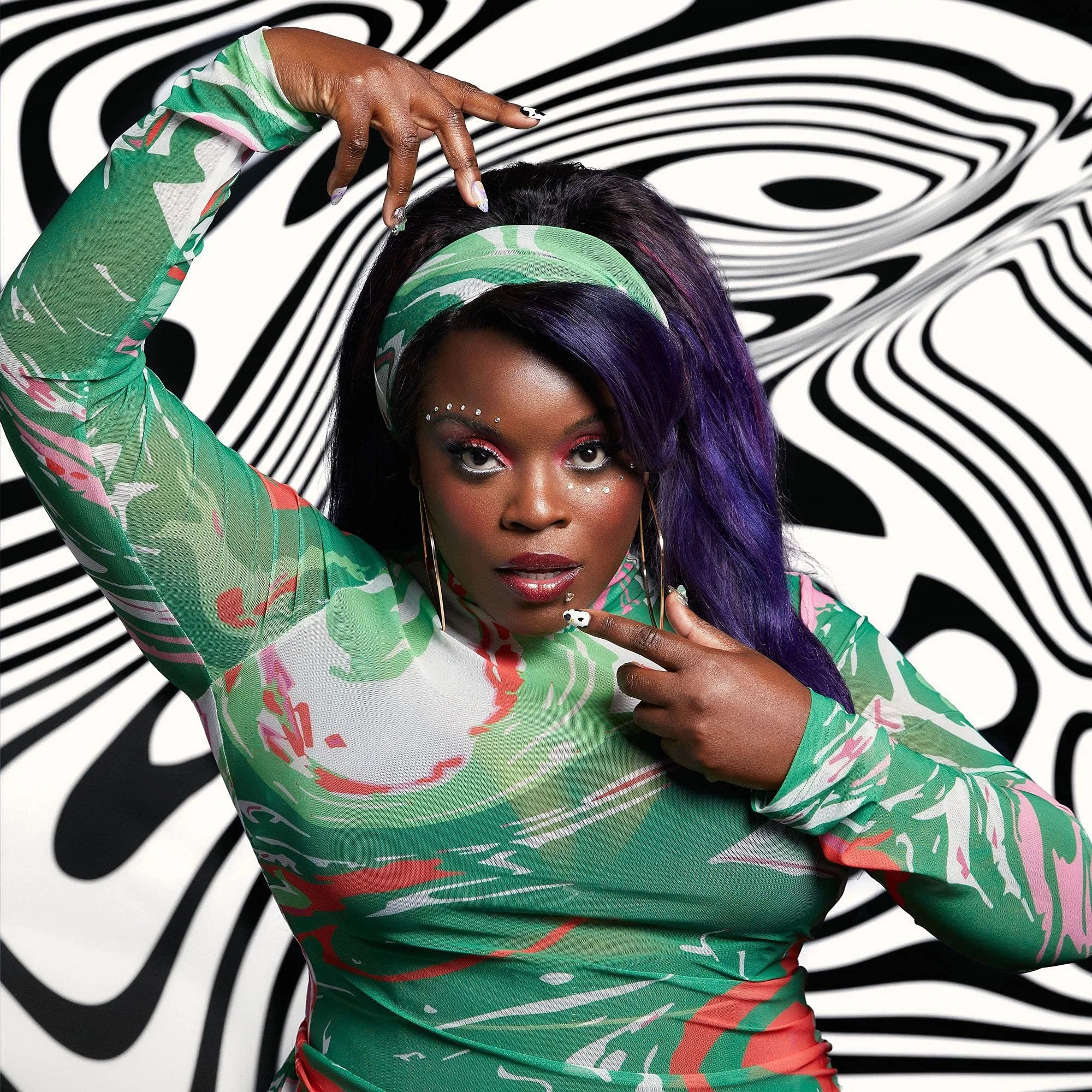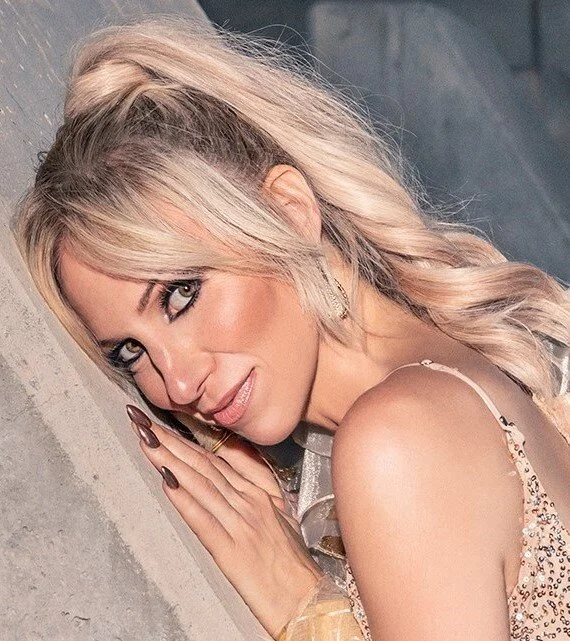Andrew Marlin/Watchhouse
"I’m in a dreamlike state—half awake and half asleep—and that’s when I’m at my most effective."
—Andrew Marlin of Watchhouse, on why he likes writing in the middle of the night.
By his own admission, Andrew Marlin of Watchhouse (FKA Mandolin Orange) is not a very disciplined writer. “I don’t force myself to write every day,” Marlin told me. “Whenever I sit down with the intention to write, I usually can’t write anything.”
Plenty of songwriters have told me that they prefer to wait until the inspiration strikes because forcing the process makes the writing derivative. But not many have told me that they get their best writing done between midnight and 4am. (This has to be difficult because Marlin’s bandmate is his wife Emily Franz, and they have a young child. I don’t know how he stays awake.) Marlin says his most productive writing sessions happen when he knows he should be doing something else—in this case, sleeping. He likes their sunroom because of the feeling of safety it affords: he’s in his house, but the full view of the outside allows him to stay connected to his environment.
Watchhouse’s new self-titled album is out now.
Does having a child make you a more disciplined writer because you have less time in a day? Or more broadly, do large expanses of time make you more or less productiuve?
A
I’m not a very disciplined writer. I don’t force myself to write every day. I wait until inspiration strikes or there’s an idea I want to tackle. it’s easier for me to write a song in a short period of time because the idea is already there. Whenever I sit down with the intention of writing but I don’t really know what I want to write about, I usually don’t write anything, or the process takes much longer.
The biggest factor in inspiration and productivity is this: am I getting out and experiencing the world in ways that allow me to write about those experiences? Because if I’m not having those experiences, it’s hard for me to write.
So you’re not a fan of deadlines?
A
Definitely not. Writing is such an act of exploration for me. Going down deep in myself to find what it is that I want to say. It’s important that I allow myself enough time to explore that space.
One of the misconceptions that people have is that all of this downtime is incredibly productive for songwriters. But the vast majority have told me that isn’t the case at all.
A
As a songwriter, I like to think that when I write I’m bringing a new perspective on something. I’m able to break down a small part of life and expose it in a way that people don’t normally see. When you talk about something so global as the pandemic, it doesn’t feel unique, but it’s hard not to write about it. It becomes a nagging subject: I don’t want to write about it but at the same time it’s all everyone is thinking about. So it’s easy to become blocked.
And on a practical level, if you’re not getting outside and having experiences, what is there to write about?
A
That’s true, but that’s why I’ve been writing so many instrumental pieces. I still have the same feelings and uncertainties, and I still need to process those. Instrumental music allows me to do that without getting too specific about those feelings. I can still get those moods out into the world. And when I’m writing, my mind can go elsewhere while my fingers do the work. When a subject is so difficult that it’s difficult to put into words, that’s when I write those instrumental pieces.
If a couple of days go by and you haven’t written anything because you’re just not feeling it, is there any angst involved?
A
I’ll always pick up an instrument to explore the space around me. But sometimes it’s not there, and then I won’t force it. When that happens, I’ll go learn and old fiddle tune or an old standard. It always helps to learn another great song; that helps me focus on what I want to do with a new song.
Do you have a ritual to your songwriting process?
A
I like to have a cup of coffee if it’s the morning, or a mug of tea if it’s the afternoon. But I get my best writing done between midnight and 4am. That’s my time to write. During the day, there’s so much to do, especially with a young daughter. So that time after midnight is the time when there are no responsibilities. I think it’s also because I like writing when I know I should be doing something else, so in this case I know I should be sleeping. I’m in a dreamlike state—half awake and half asleep—and that’s when I’m at my most effective.
There’s a chair in our sunroom that I like to sit in when I write. I can see the cars and streetlights form there. It makes me feel connected to the outside world while at the same time safe in my own house. I like a dark room with some reverb so that my voice sounds large. But during the day I seem to spend most of my days just walking around the house with an instrument in my hands. Or in the bathroom, listening to the reverb as I sing. That’s also a good place to write.
photos by Shervin Lainez
Let’s talk about walking around. So many songwriters talk about how movement plays a role in their process.
A
There’s usually an editing process after I finish a song. That takes place without an instrument, when I’m driving or riding my bike or on a jog. I’ll mull over the lyrics to make sure every word is in the correct place. I try to eliminate as much as possible in the revision process.
Do you need distance from a topic or emotion like grief to be able to effectively write about it?
A
I didn’t write an album’s worth of material about losing my mother until about 14 years after she passed. I think it’s important not to just write about the experience, but the memory. And you need distance to be able to do that, to be able to write about thoughts and emotions that you don’t have in the immediacy of the moment. Writing from memory can be very powerful. Distance give you clarity, and people look to art for that clarity.
Last question: how much reading do you get to do?
A
Not as much as before I had a kid, but I pretty much always have a book. I found out a few years ago that I love science fiction. Fantasy and science fiction is pretty much all that I read these days. Right now I’m reading a book called 2312 by Kim Stanley Robinson. Incredible writer. Because science fiction and fantasy are so different from what I write about, it’s nice to have those different images rolling around in my head. I especially love the trilogies and series. I immerse myself in those and don’t stop until I’m done.
What got you into those genres?
A
Someone gave me a copy of The Three Body Problem. That trilogy blew my mind. It’s nothing like the real world offers at all. That feeling you get when you finish a good series is like Shit. That world is gone, and I’m no longer a part of it. When I’m all done with a series, there a great bookstore here in Chapel Hill called Flyleaf, and the guy that runs it is big into science fiction. He usually gives me good recommendations.







Allison Russell and Aoife O’Donovan are celebrated songwriters—and working moms. This makes for a songwriting process in which the only ritual is recognizing that you don’t have one.